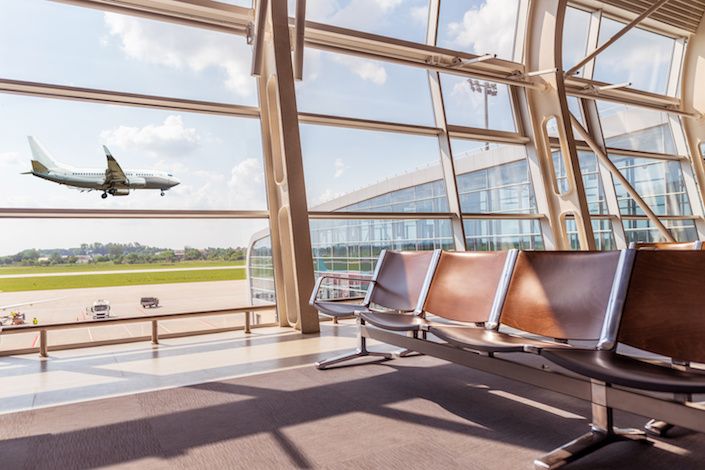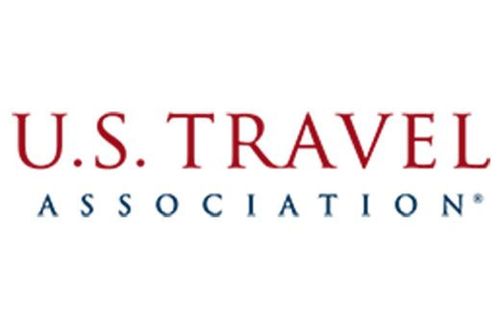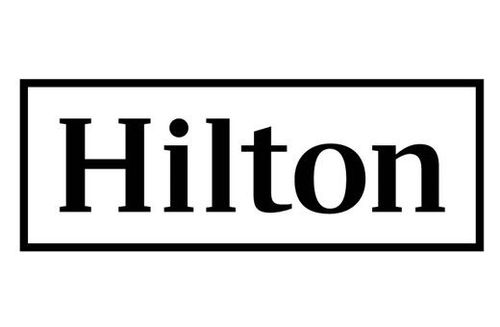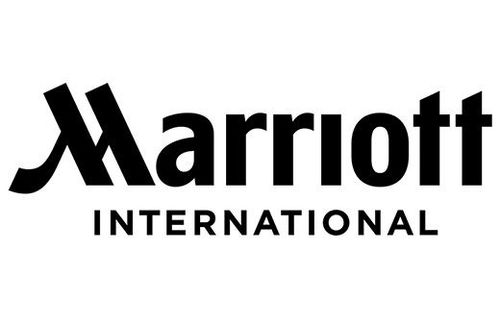Where travel agents earn, learn and save!
News / Industry perspectives: Looking ahead for the travel industry
Over the last several weeks, many travel businesses released their Q1 earnings and shared their latest expectations

These insights and perspectives help us understand how some of the largest travel corporate players are viewing the state of the economy and its impact on the travel industry as well as the main factors they are monitoring that may hinder their continued growth.
The majority of travel organizations are extremely upbeat regarding the upcoming summer travel season yet are remaining flexible should they need to change course in the later part of the year if demand starts to slow. Now that all international restrictions have been dropped, international demand is a key tailwind for the industry for the coming months.
Recent quarterly insights and trends shared with members reiterated many of the same themes heard throughout Q1 earnings reports.
Here is a deeper dive into their perspectives.
Record Breaking Summer Travel
The upcoming summer vacation season is expected to be extremely strong. The main concern organizations have is ensuring supply and capacity can keep up with demand.
Hilton Worldwide, CEO, Chris Nassetta: “We're pleased to report that demand for travel remains strong, maintaining the trend that we saw in the back half of last year, which led to both our top and bottom-line results finishing the quarter above [expectations]. As we move forward, fundamentals remain strong and we expect secular tailwinds to continue to support growth.”
Delta Air Lines, CEO Ed Bastian said “Our brand is built on a foundation of service and operational reliability, and we are committed to delivering the level of service our customers expect as we ramp up operations for the coming summer season. The operating teams have done a great job getting ready, and we are planning to grow June quarter capacity 17% over last year to meet strong customer demand. This growth is a couple points below our initial plan to fully restore capacity this summer, as we focus on delivering the best operation in the industry and remain prudent in our capacity restoration.”
Hertz Global Holdings, CEO, Stephen Scherr: “As we move into Q2, the travel industry is positioning itself for a strong summer. We are doing the same. Already we have experienced seasonal acceleration with a strong spring break and Easter week bringing us forward to Memorial Day. We have some good demand indicators with respect to summer.”
“[We] feel very good about our ability to take advantage of an opportunity this summer to really take the hill. We're in a position both with fleet and otherwise to seize that opportunity. And the second is, while the summer is in front of us, and all demand indicators are strong, there's no sensibility of the consumer turning. So, on one hand, ready to take the opportunity of the summer and seeing no abatement, but not blind to the proposition that there could be softness, and sort of positioned well to do it.”
JetBlue Airways, CEO, Robin Hayes: “…we have seen very strong international and strong domestic demand as well. The peaks remain very strong driven by this leisure demand, so whether it was holidays at the end of the year or spring break, we’ve seen very strong demand in the peaks and we expect the same for this coming summer….in general, the seasonality is returning towards normalcy with just the peaks a bit higher, and then the troughs obviously have a bit of a headwind from corporate travel.”
Universal Parks and Resorts, Michael Cavanagh, President, Comcast Corporation: “Domestically, Universal Studios Hollywood had a record first quarter thanks to the opening of Super Nintendo World, and Universal Orlando continues to perform above pre-pandemic levels. ...driving really strong attendance and per caps that are way ahead of last year and pre-pandemic levels on the back of excellent guest feedback. And in Orlando, really solid results in the quarter. We had, as you know, unprecedented visitation last year way ahead of 2019 pre-COVID. So as expected, growth rates have slowed down, but performance continues to be solid. And go-forward booking again still looks solid, similar pattern to Q1 of last year. So, so far, things continue to look good as we look ahead in the domestic side.”
Outlook for International Inbound
While still the last segment to recover and headwinds remain, the lifting of COVID restrictions and desire to explore new destinations is driving strong international growth.
Avis-Budget Group, CEO, Joseph Ferraro: [Leisure demand is] being heavily weighted right now towards international inbound. …if you think about last year with the closure of a lot of the countries, especially over in Europe, and the fact that you needed to get tested before you came back to the United States up until early June, there's just been pent-up demand. And last year, the airlines weren't ready to take on those route challenges when everything [was changing] so rapidly. And so that took a while to change and people needed to prepare. There were all sorts of disruptions in the European airports. So, there's this heavy demand towards inbound.
United Airlines, CEO, Scott Kirby: Long-haul international is moving into the lead over domestic. This is a multiyear structural change based on aircraft retirements and pilot downgrades at essentially all long-haul U.S. airlines around the world. For 2023, we expect to expand international flying by approximately twice the rate of domestic, leaning into the favorable supply-demand balance that we expect.
Marriott International, CEO, Tony Capuano: “…roughly three‐quarters of [Chinese travel] is typically domestic. Right now, it’s over 90% domestic. So, there is the reality that there's going to be more travel both in and out of Greater China as demand and airlift improve…the segment recovery is very similar to the way that we saw it in other parts of the world. The one difference that on special corporate and business transient in China, is recovering much more quickly than it did in the U.S. For example, people are overwhelmingly back in their offices in Greater China. So, we are seeing all of the segments recover more in line with each other rather than necessarily one after another the way it was in the U.S.
SeaWorld Parks & Entertainment, CEO, Marc Swanson: “International [attendance] was obviously up in Q1 versus 2022. It's still not up to 2019. So, that is a reason to be optimistic, that we are still down roughly over 40% in Q1 to 2019 in international attendance. We have more ground to make up there.
Hertz Global Holdings, CEO, Stephen Scherr: “There is a particular opportunity around international inbound travel, which has been a significant component of rental revenue, yet remains only 60% back to pre-pandemic levels through Q1. This customer segment traditionally demonstrates higher margins.”
“International inbound business from Latin America is pacing strong. European travel which is much improved from the troughs of the pandemic continues to build but it is not yet back to pre-pandemic levels, creating opportunity. And perhaps most significantly, Asian inbound business is only beginning to show improvement. With COVID rules relaxed, we believe inbound travel from Japan, Korea and eventually China will yield positive returns for our business.”
Transient Business Travel Leads Recovery but Group Making Headway
While some industries are experiencing a bit more uncertainty than others, business travel continues to take off, including the larger corporations who have, to date, been a bit more reticent to get their employees back on the road.
Hyatt CEO, Mark Hoplamazian: Business transient had the strongest relative recovery [in Q1], more than doubling last year's first quarter revenue and reaching approximately 85% of 2019 levels with March, especially encouraging. Large corporate accounts had the most recovery momentum in the quarter while small and medium enterprises improved slightly. [And the] good news is that we're up 24% for the year. New bookings right now are pacing ahead in ADR versus what's on the books. The only other dynamic I would point out is that the large corporates are actually representing a lot of the growth.
Marriott International, CEO Tony Capuano: While macroeconomic uncertainty persists, it has not weighed on travel demand to date. In fact, demand continued to rise across all customer segments in Q1. Forward bookings are solid, though our transient booking window is still short-term at around three weeks, so trends could change relatively quickly. Group demand was also very strong in Q1. Group revenue for full year 2023 was pacing up 26% to 2022 at the end of the quarter, a significant improvement from group pace at the end of last year.
Delta Air Lines, CEO Ed Bastian said [the technology sector] is one of the least recovered. Financial services is actually showing some momentum surprisingly…[now that many corporations] have a pretty significant push to get workers back in the office. And we have seen a high correlation between the opening of offices with the return of corporate travel. And that is a good tailwind for us on the corporate revenue front.
Despite business travel being a bit slower to recover, travel organizations are benefiting from flexible work arrangements and seizing on new opportunities blending business and leisure demand.
Hilton Worldwide, CEO, Chris Nassetta: [COVID] accelerated the idea of mobility. While the office environment is normalizing, a lot of people are going back. It's not exactly what it was. More people are going to be remote as a percentage of the workforce permanently [and have more] flexibility [throughout the year]. …as those patterns shift, it's building more and more demand against a limited amount of supply.
Marriott International, CEO Tony Capuano: The best statistical data we have is the recovery by day of the week, we continue to see strong recovery on Sundays and Thursdays. This is the most compelling data we have that suggests that blended trip purpose continues to be strong... and that trend shows no sign of slowing down.
United Airlines, CEO, Scott Kirby: Given the new normal, there is greater emphasis on seasonally shaping capacity. I am hopeful that after further evidence that we'll be able to operate a more stable schedule all the way from March through the end of October…which will definitely benefit our cost structure having less of the peak. However, we are not there just yet. I think we need to make it through this year. We need to see how the remote work schedules continue to play out [the rest of this year]. And I think that will help us validate for next year whether we actually change the seasonal shape.
While many economists are still calling for an economic slowdown and potential recession later this year, travel industry executives remain cautiously optimistic and see nothing but tailwinds on the horizon.
Marriott International, CEO Tony Capuano: “…the timing of demand recovery has varied across regions depending on COVID policies, it is clear that post‐pandemic, people have a deep appreciation for travel. While macroeconomic uncertainty persists, it has not weighed on travel demand to date. In fact, demand continued to rise across all customer segments in the quarter. Forward bookings are solid, though our transient booking window is still short‐term at around three weeks, so trends could change relatively quickly.
[As for our 2023 outlook] with the better than expected first quarter results and robust global booking trends, we are raising our full year guidance. Macroeconomic uncertainty is not impacting our short‐term demand, and trends across all customer segments remain strong.”
Disney, CEO, Bob Iger: There are still many moving pieces, including macroeconomic factors, the state of the global advertising market, and content timing shifts, which could impact our plans and expectations for the back half of this year. We are incredibly optimistic about the long-term value creation opportunities that the changes we are currently executing on can generate for our company.
United Airlines, CEO, Scott Kirby: Our guidance is based on what we're seeing right now. And what we're seeing right now is still strong demand. At airlines, the macroeconomic weakness is being offset with the countertrend of consumer spending continuing to rebalance back to services.
However, it seems clear that the macro risks are higher today than they were even a few months ago. Our [baseline scenario] remains a mild recession or soft landing, consistent with what we're currently seeing in our bookings. But the tail risk is higher than normal. We've prepared for it by having a lot of flexibility in capacity, as needed.
We can't control what happens with the macro economy, but we can and are doing a great job of controlling our costs. You can't run your airline like it's 2019. It's different and harder now. Over the last three years, our industry is confronted a rapidly changing environment. The operating environment is more challenging, which means reliability is harder, but also at a premium for producing bottom line results. That's not to say that there aren't real near-term risks. But we feel really good about the strategic setup and tactical execution here at United.











